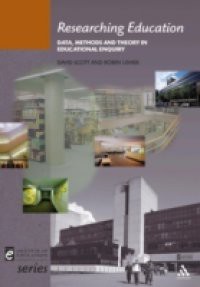This volume is a study of the theory and practice of researching education. It examines the philosophical, historical, political and social contexts of researching and the implications of these for the collection and analysis of data. The authors argue that power is ever present in the construction of research texts and this is inevitable, as research imposes a closure of the world through representation and thus is always involved with and implicated in the operation of power. The book addresses such fundamental questions as: What is legitimate knowledge?, What is the relationship between the collection and analysis of data? and How does the researcher's presence in the field affect his or her data?. Divided into three sections, the book reviews the philosophy of research; the strategies and methods of research; and the issues involved in research. The authors present the reader with a balance of theory and practice, providing case studies, examples and tables to support and illustrate their arguments.

